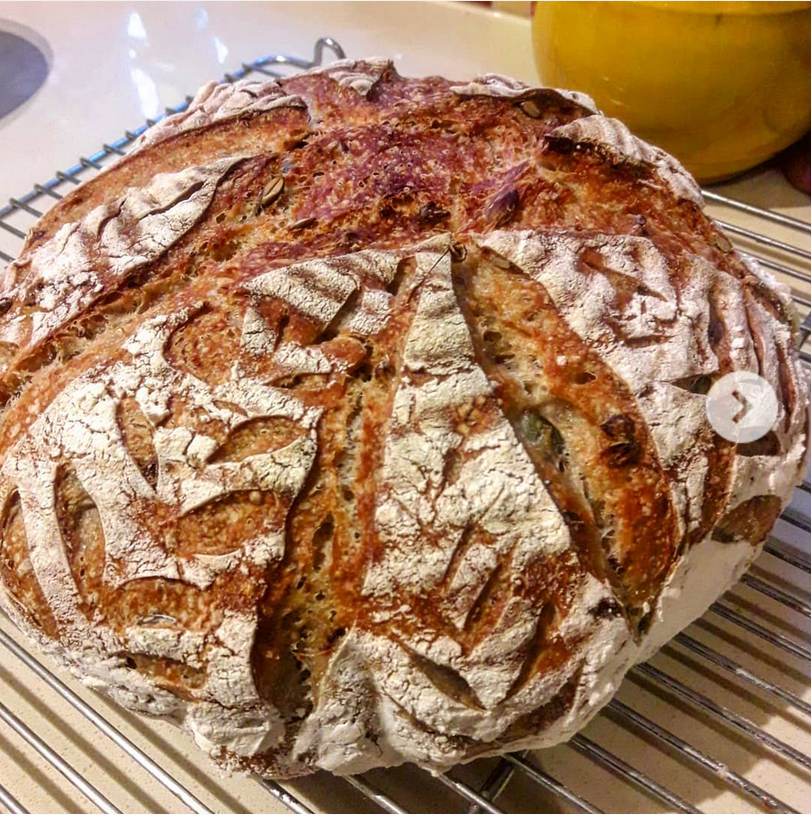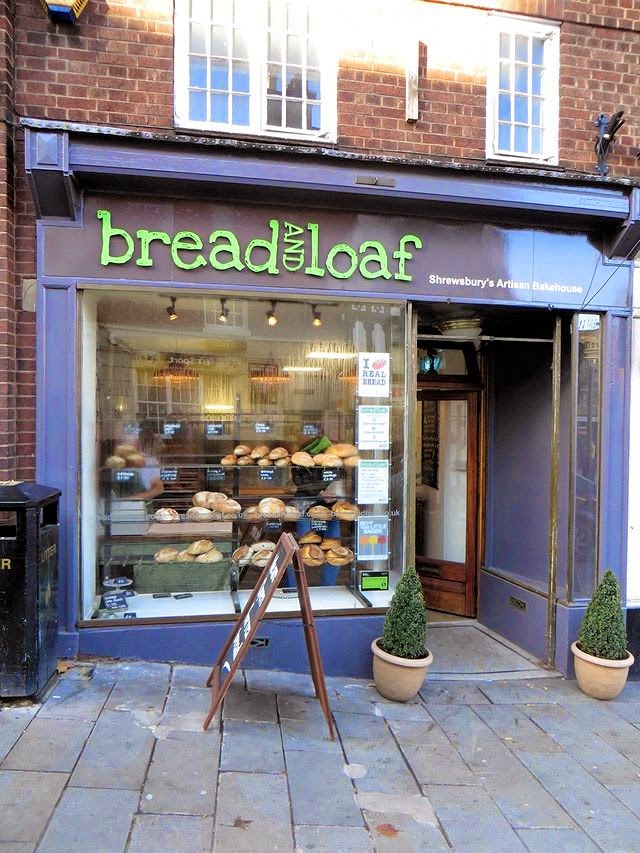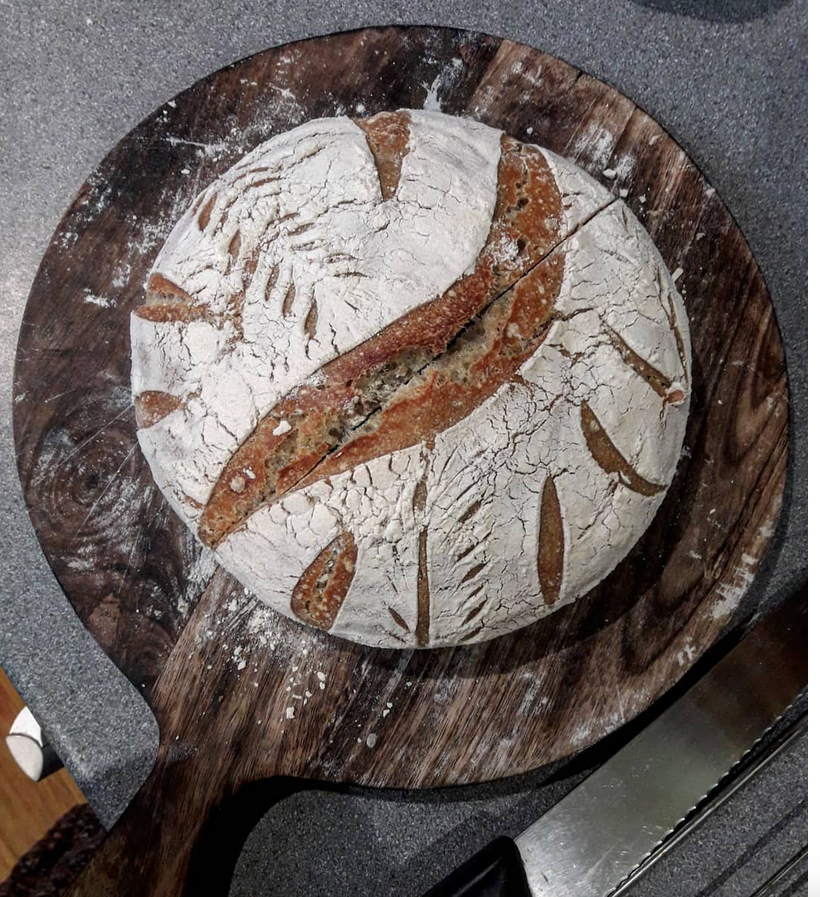by Hazel Anna Rogers for the Carl Kruse Blog
I remember the fat white bread maker sat on the kitchen counter throughout many years of my childhood, and the smell that wafted up in the morning before I could properly open my eyes. Bread is my father’s pride, a baby to nurture and encourage long after my siblings and I had grown up. His sourdough forays began around 10 years ago now, an art more volatile and temperamental than the chubby yeasted dreams he’d been used to baking before. His bread had reached toddler stage, each reincarnation it took more incomprehensible than the last. ‘Herman’, the beloved family starter, was the cause for many a fridge mess, dribbling incorrigibly over whatever surface it was placed on, ever excitably bubbling and erupting.
At weekends, we would often indulge in a muted supermarket sourdough, unaware of its characteristic differences to the bread we indulged in at the hands of my father. Only recently did I, after 8 months of steadily making my own successful sourdoughs, enquire into the story of the supermarket sour ‘faux’. The possibility of making fairly cheap sourdough on such an enormous scale seemed impossible to me, knowing the extensive love and care that I gave to my own loaves. Time is money, and time is not a luxury that supermarkets have to give when millions of loaves are being bought every day. The sourdoughs of supermarkets are mostly quicker-rise loaves, fed with yeast and other ingredients to encourage a more even, standardized bake and faster rise.
When we talk about sourdough, what comes to mind is, alongside moreish taste and delectable texture, is money. Micro-bakeries are notorious for the price of their breads, mostly costing between £3-£5 a loaf, dependent on flour blend, loaf size, and time spent. And why shouldn’t we pay more for bread, a foodstuff blissfully crafted by the same methods our ancestors used hundreds of years prior? Are micro-bakeries a frivolity aimed at the middle-to-upper classes, people who have the money to spend on higher quality food? Amidst a Britain suddenly under the grasp of a government-aimed scheme at halting obesity in its track, one must question the attainability of health when the foods that are cheapest are those that fuel weight-gain, the addictive bright white breads, the cheap multi-packs of biscuits, the salt-filled ready meals. I don’t disagree with the price of bought sourdough – time and love are the greatest gifts we can give to our food, and these are integral in the realm of sourdough bread-baking, so we should pay for this care and precision.

Another sourdough loaf lovingly baked by the author.
I went to speak with Anthony, owner of an independent bakery in Shrewsbury called Bread and Loaf, a tiny, unassuming shop that boasts some of the softest crumb and most mouth-watering patisserie I’ve tried in the town. I asked him his thoughts on the current trends of bread and about his own experience of working with this humble ‘father of food.’
Me – Do you think that micro bakeries are the future of bread? Or do you think their popularity is simply a small bubble fueled by a relatively minor community of affluent, or middle class, demand?
Anthony – I wish – unfortunately I think that the commercial food industry and supermarkets in particular hold most of the cards – they are able to offer the majority of the shopping public baked goods that are cheaper than ours and that look to be of a high quality. However, many people do want to shop locally and do want to know what they are eating – so I do see a long term future for the small bakery who concentrates on the highest quality products – made with honesty and in a traditional way. My own baker does without doubt have a significant number of relatively affluent customers – BUT we do also have a large number of customers who are less well-off but really value good bread (and it is bread in particular) – these customers often (but not always) come from countries in eastern Europe with a strong bread culture.
Me – What are your views, in general, on mass-produced breads, and particularly their influence on the culture of the ‘gluten-free’ myth?
Anthony – I have a number of customers who cannot tolerate mass produced bread – they are able to eat my bread (made with flour water and salt – or – flour water salt and yeast) – if you look at mass produced bread ingredients you will probably see it is made with 9 or 10 ingredients – it is normally made very quickly using the Chorley Wood process – I don’t really think that this can be good for anyone – However there is a wider food problem of which this is only part – good quality food is not affordable to everyone – let’s see that ‘leveled up’ please government!
Me – Tell me a little about your connection to bread making, and the joys and love you harbor for the craft
Anthony – I love making bread – simple as that. The actual process is very calming (very hard work) but I also love making something for people that they want – it really is very rewarding.
Me – I’d love to have a brief summary of your process
Anthony – Process – day before I bake – make a production starter for sourdough; mix long maturing yeasted doughs (wholemeal, white, baguette); mix sourdoughs; bulk rise of all doughs for approximately 2 hours with hand stretch and fold approx. 4 times; bulk rise of yeasted breads overnight in retarder; form sourdoughs and place in bannetons overnight in retarder; Baking day – bake sourdough; form yeasted breads into tins/bannetons second rise for about 1 hour – bake, stack shelves and sell bread. Prep bread as day one for the next day.
I’m not sure but I suspect that we are very lucky in Shrewsbury – it is a very affluent town with lots of visitors – all of whom make for good customers.
Speaking with Anthony made me think more about the current trends around bread, and carbohydrates in general. With the rise of paleo diets, demonization of gluten, and ‘low-carb’ fanaticism, it sometimes feels as though bakeries are apart from the continuing globalization of diet trends and continuing obsession with the latest food fads. When I worked as a barista at a coffee and bread café in Brighton, most days we would have a customer demand a gluten-free option, to which I would swiftly direct them to the £5 gluten-free loaf on the top of the bread shelves. The rest of the shelves boasted big, voluptuous crusty loaves which I had stacked that morning, wedged tightly into their designated thrones, thrones which would be almost certainly empty by the end of the day. I hold some delight in the fact that people still love good bread, that society still seeks a satisfying doughy mouthful away from the limp white loaves that clutter our supermarkets. I used to take great pride in carefully folding and packaging the fat breads in crisp brown paper, and think about the first slice that would be taken into them, doorstop-slices ready to douse in butter and dip into a warming soup. Such pleasure can’t be going anywhere anytime soon, I’m sure.

My message? Support the bakers on your street corners, support the local flour mills and make your own bread, learn this ancient art for yourself. Bread is a wondrous thing.
================
Carl Kruse Blog Homepage here.
Contact: carl AT carlkruse DOT com
Other articles by Hazel Anna Rogers include Those Glorious Trees, Why Be Kind, On The Wonders Of Classical Music, and Paper Books, E-Books Dreams.
An older Carl Kruse blog is at https://carlkruseofficial.wordpress.com/.


OMG I love bread so much and was so happy to see this article. Is there a food that has been around longer in history?
All hail bread! 🙂
Carl Kruse
Carbs schmarbs. Gimme bread brother.
Preach sistah!